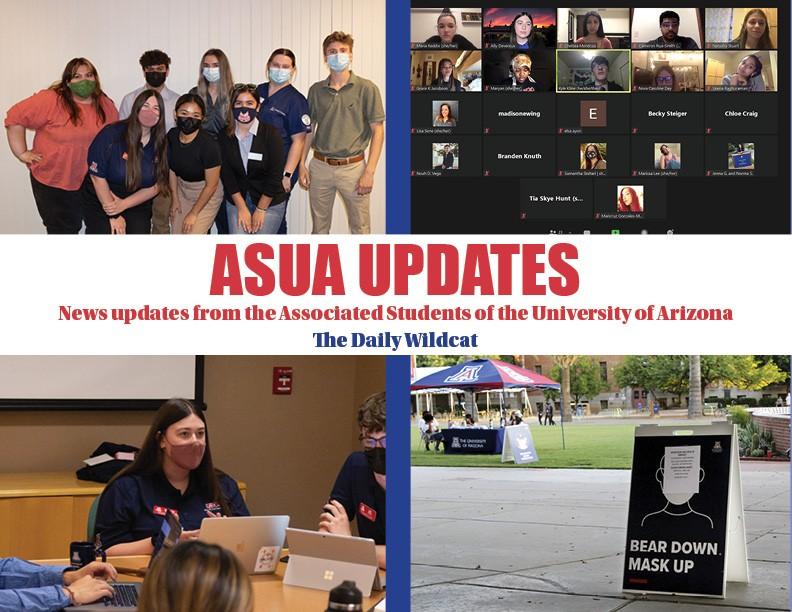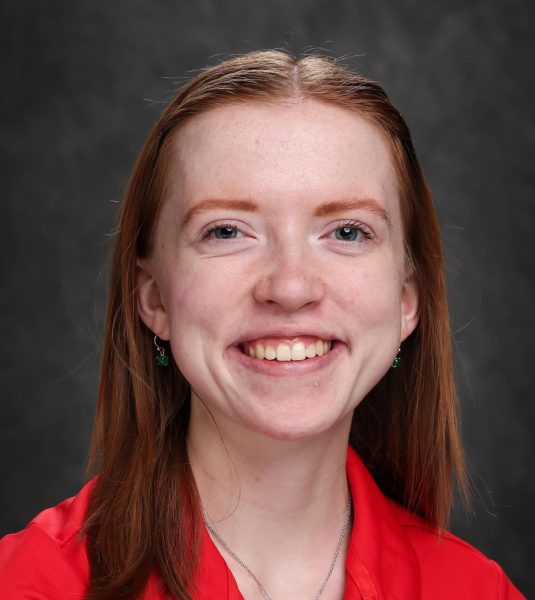The Associated Students of the University of Arizona, the university’s undergraduate student governing body, met on Oct. 20, 2021 to discuss the Health & Recreation Fee increase.
The meeting was called to order at 7:02 p.m. and adjourned at 8:29 p.m. The Senate gathered in the Madera Room of the Student Union Memorial Center and over Zoom.
According to ASUA’s post-meeting minutes, two senators were marked absent during roll call: Louise Lalescu, senator for the College of Science, and Swathi Ramkumar, senator for the College of Engineering.
UAZ Divest update
Noah Vega, ASUA student body president, and Kyle Kline, ASUA administrative vice president, updated the senate on the UAZ Divest resolution.
The UAZ Divest resolution calls for the University of Arizona Foundation to completely divest from fossil fuels by 2025. Although, previously Vega said this could take years to complete.
The University of Arizona Foundation “is a nonprofit organization dedicated to advancing the UA through philanthropy,” according to its website. Their mission is to “[advance] the University of Arizona by building relationships, securing philanthropic support and stewarding assets.”
They attempted to meet with the board of trustees but were rejected for a meeting time. Vega and Kline wanted to meet with the board to get a formal statement from them saying they will not make any additional investments in fossil fuels.
“I think it’s a little frustrating … your customers are the students,” Vega said. “The people keeping this institution alive are the students and you can’t sit down with students to talk about what they’re passionate about and where they want the university’s money to go.”
Vega and Kline had the opportunity to meet with JP Roczniak, CEO of the UA Foundation and Craig Barker, CFO of the Arizona Foundation, with who they “were able to find mutual points of concern for the student body,” Kline said. “I am hopeful we’ll be able to get a meeting with the board of trustees.”
“They expressed their concerns that there could be a $25 million loss for the foundation if they were to full-stop divest” Kline said. “We want to protect educational equity for students’ scholarships and opportunities, but we would like some kind of formal statement that there will be divestment so we’re not investing in fossil fuels because this is a public health issue.”
Vega plans on meeting with UA President Dr. Robert C. Robbins to talk about the possibilities of setting up a meeting with the board to get a statement.
The resolution further called on UA leadership to strengthen “sustainable and socially conscious … investment strategies and partnerships” through a new and distinct “socially responsible investment fund” and the inclusion of student voices in the UA Foundation.
Health & Recreation Fee
Troy Vaughn, director of Campus Recreation, David Salafsky, director of health promotion and preventive services, and Tim Gustafson, chair of the health and recreation fee advisory board, presented a proposal to increase the fee by $175 to the Health & Recreation Fee for new students beginning in 2022.
Currently, the fee is $425/year, but this increase would change it to $600/year. This only applies to new students on the main campus. Returning students will still pay $425/year, and students on other campuses and remote learners do not have to pay the fee. This fee acts as the primary source of funding for both Campus Health and Recreation.
Salafsky and Vaughn cited several reasons why an increase in funds is necessary. Salafsky said that throughout the COVID-19 pandemic, Campus Health has seen increased demand for mental health services. The proposed H&R fee would provide a discount for these services. Vaughn added that a budget increase is needed as operational costs rise for the Student Recreation Center and more money is needed to support NorthREC.
“Like a lot of units on campus, … we’re dependent on a fee for service revenue; fewer students, less fee for service revenue,” Salafsky said on Campus Health.
Campus Rec also saw a drop in revenue. Although the UA did not require the Rec Center to pay their annual bond, they still saw a loss of about $2.5-$3 million, according to Vaughn.
The two directors also said that this fee increase is necessary due to the funding cuts that arose as a result of the COVID-19 pandemic.
Salafsky, Vaughn and Gustafson hope to continue spreading the word about this proposal before the decision is made by the UA Budget Office.
“[Vaughn] and I are going to go out to as many student groups as we can this semester to inform and educate and the idea is that next semester would probably be when things would be moving forward,” Salafsky said.
Senate initiative
Ally Devereux, ASUA executive vice president, brought up starting a senate initiative for the semester. She wants the senators to bring back ideas next week to put this into motion.
Each year, the Senate has $20,000 to spend on starting something for the university. In years past, this money was used to start programs like SafeRide and Campus Closet.
“I would want the Senate to also help invest in [Counseling & Psych Services]. … I think that’s on the mind because we just talked about it, but I do think CAPS is a worthwhile service to invest in, so I would be excited if senators wanted to do that,” Devereux said.
The senate has a separate budget from the president. This year, Vega has $5,000 to start something of his own on campus. This was reduced from around $15,000 in previous years and the excess money has been allocated directly towards the programs and services fund.
Devereux said most of the president’s budget was normally given away to Campus Pantry at the end of the year, so “now it’s being more proactively used.”
Notable mentions
Kline hired the director of volunteer services last week. The new director is Simone Norton-Abad. The position helps provide volunteering opportunities to students on campus in addition to running Bear Down & Vote, an initiative to educate and help students through the voting process.
Follow Jane Florance and Sam Parker on Twitter










